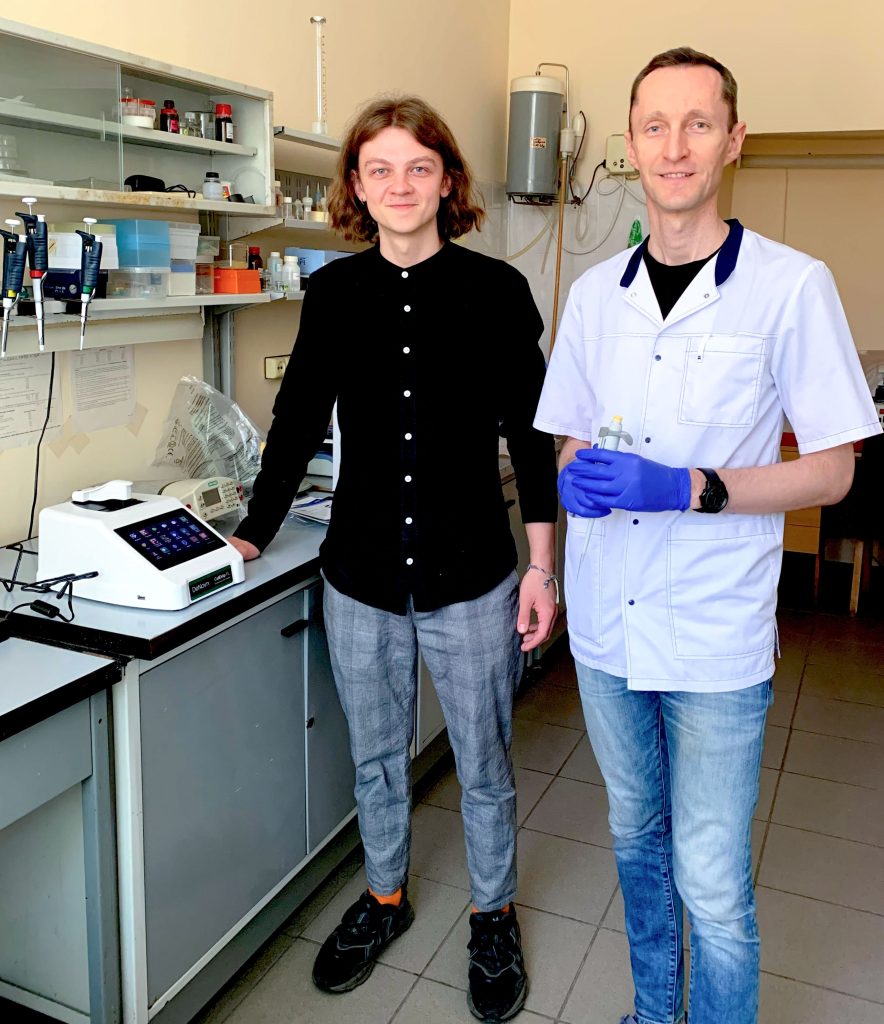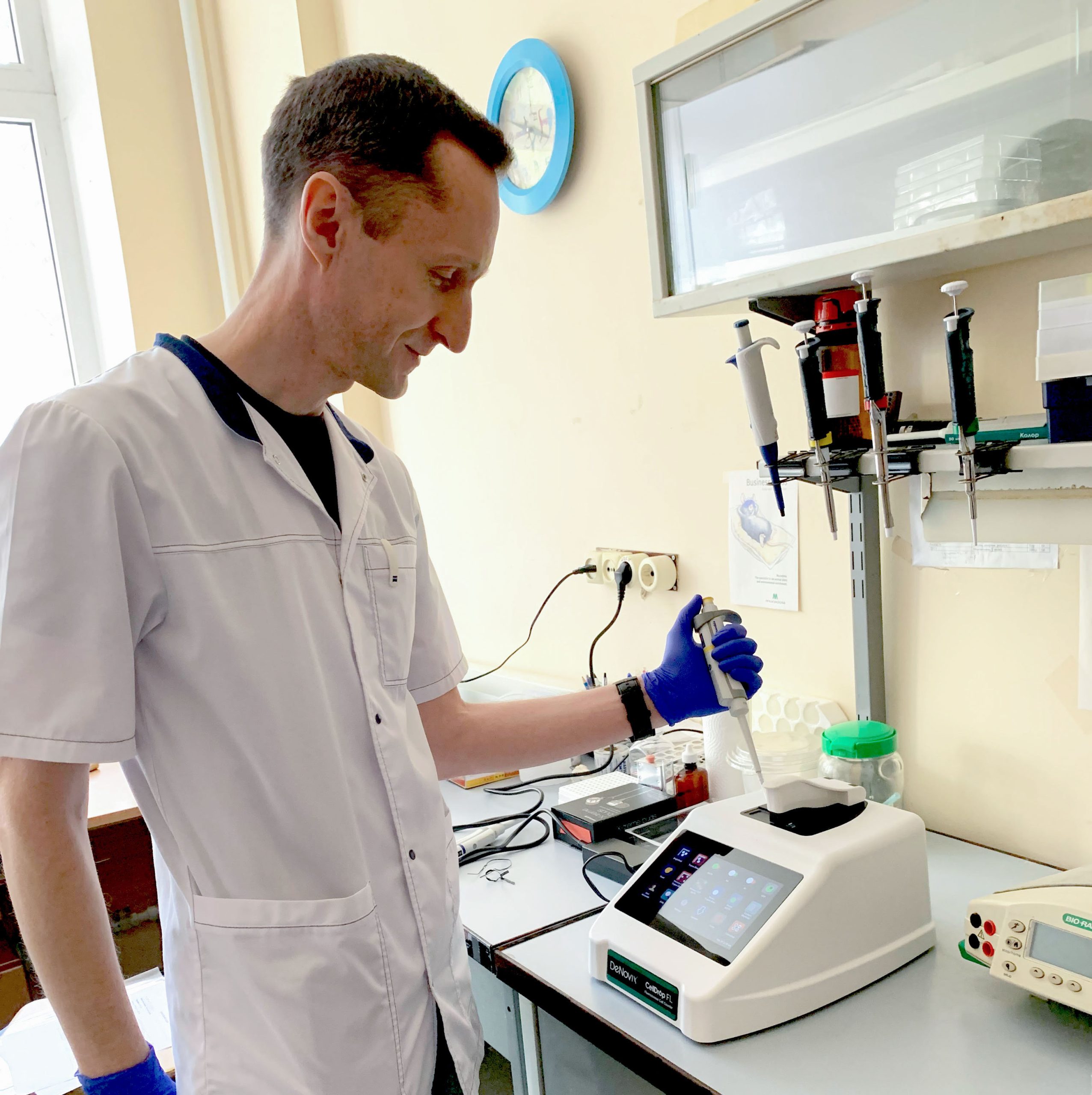Dr. Oleg Tsupykov works in the Department of Cytology at the Bogomoletz Institute of Physiology in Kyiv, Ukraine. The addition of a CellDrop Automated Cell Counter to their laboratory has revolutionized their cell counting processes and helps minimize the use of plastic consumables.
The laboratory’s work focuses on investigating cellular and molecular mechanisms underlying neurodegeneration in various segments of the CNS. Their research encompasses the study of molecular mechanisms of intercellular and intracellular signaling under normal and pathological conditions, utilizing both in vitro and in vivo models. Additionally, the lab explores the regenerative properties of stem cells from different sources, examining their application in experimentally induced neurodegenerative pathologies, such as brain ischemia, perinatal CNS pathology, and neuroinflammation.
In collaboration with colleagues from Lund University, Dr. Tsupykov and his colleagues demonstrated the in vitro and in vivo production of myelinating oligodendrocytes from a human induced pluripotent stem cell (iPSC)-derived long-term neuroepithelial stem cell line, which also gives rise to neurons with the capacity to integrate into stroke-injured, adult rat cortical networks. The paper exhibiting their work was recently published in Stem Cell Reports.
“The CellDrop has proven invaluable in our research, particularly for counting various cell types, including mesenchymal stromal cells, neural progenitor cells, and peripheral blood mononuclear cells (PBMCs),” stated Dr. Tsupykov when asked about his experience with the CellDrop. “We are committed to utilizing the CellDrop Automated Cell Counter to its fullest potential and ensuring that its impact is felt across our scientific community.”
View Post: X (Twitter), Instagram, Threads, Facebook, LinkedIn




